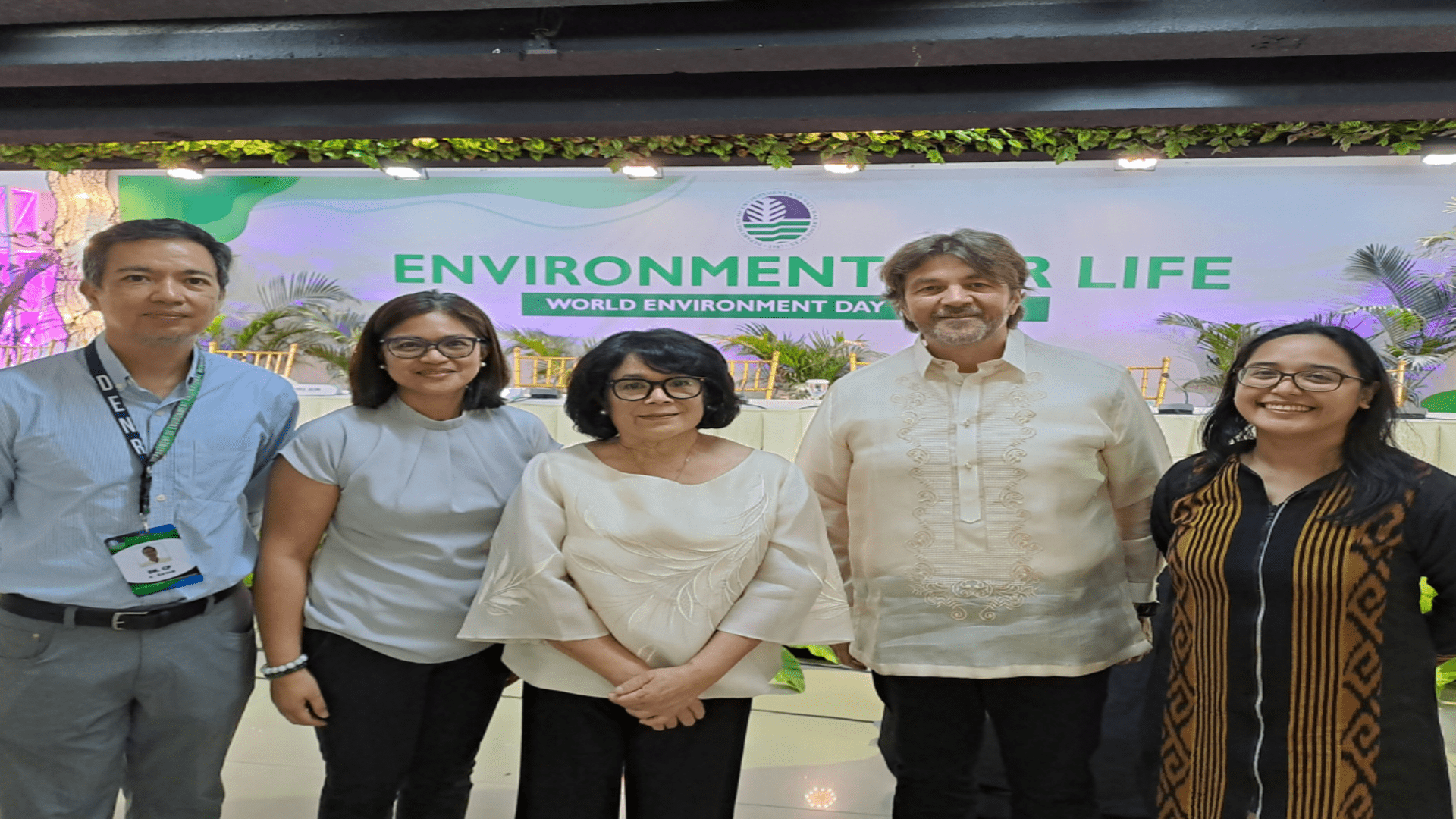Holcim Philippines, Inc. pledged to further accelerate initiatives that advance decarbonization and circularity in the construction industry as it joins the Department of Environment and Natural Resources (DENR) in celebrating World Environment Day and Philippine Environment Month in June.
Holcim Philippines was among the seven companies that presented its environmental stewardship programs during the agency’s World Environment Day celebration. Led by Environment Secretary Maria Antonia Yulo-Loyzaga, the event on June 5 had the theme Blazing New Trails and Building a Shared Future with DENR’s Strategic Partners.
Secretary Loyzaga called for greater collaboration among concerned stakeholders to protect nature and promised a rigorous science-based approach in DENR’s push for programs and policies to safeguard nature and combat environmental challenges faced by the country. 
Holcim Philippines President and CEO Horia Adrian expressed his gratitude for being among the partners featured by the DENR to share its green programs and pledged to support the transition to sustainable construction to better build progress in the Philippines.
Adrian noted that the construction industry’s key role in sustainable development given its significant environmental footprint. To address this, he shared the company’s efforts to improve efficiency of operations, introduce new building solutions with lower carbon footprint, and recycle materials to lessen consumption of virgin materials and help communities manage waste.
Adrian also talked about the Holcim Group’s marine waste collection and research vessel Circular Explorer, which will be operated in partnership with the DENR along with One Earth One Ocean, and the University of the Philippines Marine Science Institute. The solar-powered vessel will support the rehabilitation of Manila Bay and support awareness building on the power of circularity in decoupling growth and development from consumption of virgin raw materials.
“Building more with less, building new from old and building more efficient buildings with greener materials & smarter designs! This is our commitment on the World Environmental Day to decarbonize the construction industry in the Philippines! Great to see the commitment across both the public and private sector to embed circularity into the new ways of construction! Nature is life and together we can make a positive impact on preserving its beauty for future generations,” Adrian said.
Holcim Philippines has launched this year two new products for building durable and strong structures with less impact on the climate compared with ordinary Portland cement (OPC). The company rebranded in April its flagship product for general construction Excel ECOPlanet given its 30% lower carbon footprint than OPC. Holcim also introduced in June its limestone cement Optimo for vertical construction projects which has a 10% lower carbon footprint than OPC.
The company is also advancing circularity by embedding more recycled materials into the cement products as well as increasing the amount of alternative fuels used in operations. In the first quarter, Holcim Philippines recycled 290,000 tons of materials and supported more than 40 local governments in keeping their communities clean led by its waste management unit Geocycle.
Finally, Holcim Philippines’ commitment to conserving and protecting resources are highlighted by the recent Water Wise Award it received from the National Water Resources Board for successfully reducing freshwater withdrawals by 64% in operations from 2018. Holcim Philippines has invested in closed-loop systems to raise water use efficiency and rainwater harvesting facilities to reach its target to be water-positive or cut freshwater withdrawals to zero and provide water to the community by 2030.



